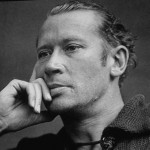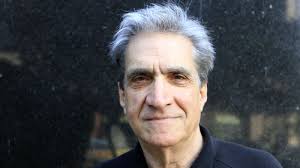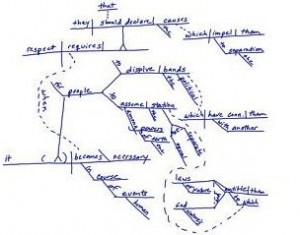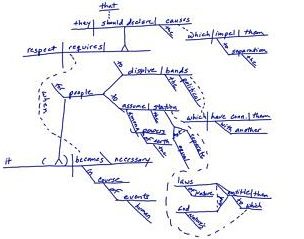 In tenth grade, I convinced my teacher to let me do a unit on poetry. I started with this poem by e. e. cummings, which is labeled simply “20” in his 100 selected poems, which I still have.
In tenth grade, I convinced my teacher to let me do a unit on poetry. I started with this poem by e. e. cummings, which is labeled simply “20” in his 100 selected poems, which I still have.
It is battered and dogeared. I was very fond of it for many years, although it has now been more years since I have opened it.
20
she being Brand
-new;and you
know consequently a
little stiff I was
careful of her and (having
thoroughly oiled the universal
joint tested my gas felt of
her radiator made sure her springs were O.
K.)i went right to it flooded-the-carburetor cranked her
up,slipped the
clutch (and then somehow got into reverse she
kicked what
the hell) next
minute i was back in neutral tried and
again slo-wly;bare,ly nudg. ing(my
lev-er Right-
oh and her gears being in
A 1 shape passed
from low through
second-in-to-high like
greasedlightning) just as we turned the corner of Divinity
avenue i touched the accelerator and give
her the juice,good
(it
was the first ride and believe I we was
happy to see how nice and acted right up to
the last minute coming back down by the Public
Gardens I slammed on
the Continue reading “My one day as a poetry teacher” →
 I took Robert Pinsky’s new book of poems with me on a trip this weekend, but when I came back, I opened his Selected Poems to this, which has the flavor of the cantor in the Jewish service, the singing, incantatory lines that I love:
I took Robert Pinsky’s new book of poems with me on a trip this weekend, but when I came back, I opened his Selected Poems to this, which has the flavor of the cantor in the Jewish service, the singing, incantatory lines that I love:





